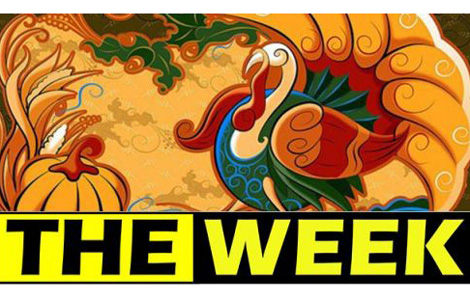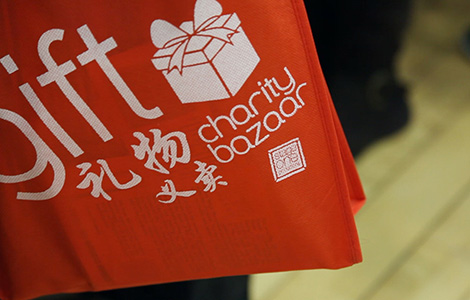Court hears Nongfu Spring defamation suit
Updated: 2013-11-30 01:04
By Cao Yin (China Daily)
|
||||||||
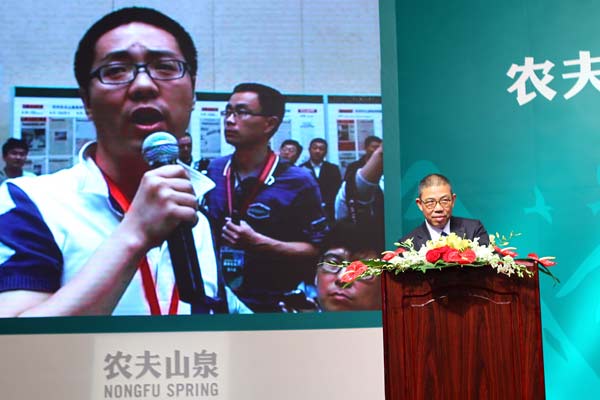 |
|
Zhong Shanshan, chairman of Nongfu Spring, is interrupted by a Beijing Times reporter as the two argue about water standards during a news conference in Beijing on Monday. [Zou Hong / China Daily] |
A high-profile case in which a bottled-water producer accused a Beijing newspaper of defamation was heard at Beijing Chaoyang District People's Court on Friday.
Nongfu Spring, one of China's bottled-water giants, argued with the Beijing Times for more than half a year, claiming the newspaper intentionally and systematically ran 76 "fake" stories from April 10 to May 7 in order to tarnish its image.
On April 28, the company, based in Hangzhou, capital of Zhejiang province, filed suit against the paper in the capital's No 2 Intermediate People's Court, saying the media had imposed "propagandistic violence" against it and asking for 60 million yuan ($9.7 million) as compensation.
Later, in Chaoyang District People's Court, the newspaper countercharged the company with damaging its reputation while claiming that the enterprise was following standards laxer than those for tap water when manufacturing its bottled-water products.
The producer then increased its compensation demand to 200 million yuan.
On May 6, Zhong Shanshan, chairman of Nongfu Spring, said the company had adopted both national standards and provincial requirements in Zhejiang, and that the national standards are mandatory for every bottled-water company, which is why they were not printed on its labels.
Zhong added that in case there is a discrepancy between the two standards, his company follows the stricter one.
The giant also announced it was closing its branch in the capital, and its dispute with the newspaper became white-hot in a news conference on the same day.
Chaoyang court finally merged the two cases to try to resolve the conflict.
At Friday's hearing, the newspaper's representatives provided more than 20 bottles of water, saying all of them followed the national standard except Nongfu, which followed the provincial standard.
The newspaper's lawyers, Zhang Bin and Xie Guanbin, said during the hearing that before publishing the stories, the paper contacted more than 10 water specialists to ensure that the reports were accurate.
Apart from Beijing Times, other media, including People's Daily, China Central Television and Xinhua News Agency, had published or broadcast similar stories about Nongfu, the lawyers said.
"What we question is why the company followed the local water standard, not its product's quality. In other words, what we doubted is the disordered water standard in our country," Zhang said. "The company confused the public and defamed the paper with ugly words.
"Our client did not fabricate the facts that Nongfu products were off the shelves in supermarkets, because that was provided by a Beijing-based bottled-water association," she said, adding that the media sent an interview outline to the giant.
The newspaper asked the company to pay 1 yuan as a symbolic compensation, as it was simply aiming to improve the truth of its reports, the lawyers added.
But Ye Zhijian and Zhang Zhaohua, attorneys for the enterprise, said the stories were not rigorous or scientific, and that the newspaper interpreted out of context the facts in a bid to deliberately smear Nongfu.
"Take one report's headline, for example. It said Nongfu Spring was not as good as tap water, which obviously damages our client's reputation," Ye said.
In addition, the company decided to sue the water association because it did not give comments based on the facts and provided information to the media without confirmation, Zhang added.
The court asked the two parties to continue organizing evidence and did not hand down a verdict after the almost three-hour hearing.
Earlier in November, the company filed complaints with the top media regulator, made amid a nationwide campaign by the government and news organizations to crack down on false reports and journalistic corruption.
The move was launched after police in Hunan province detained Chen Yongzhou, a journalist with the Guangdong-based New Express who was suspected of taking bribes and denigrating a Hunan enterprise with fabricated information.
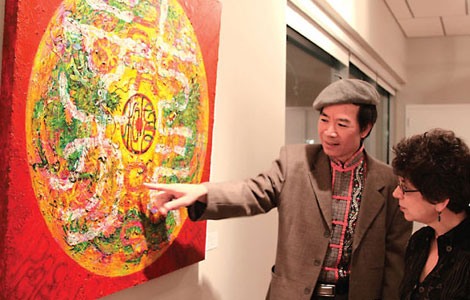
 Artist bridges Chinese and Western styles through his paintings
Artist bridges Chinese and Western styles through his paintings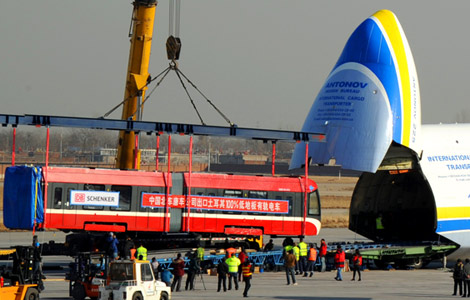
 Heavy cargo flights taking off
Heavy cargo flights taking off
 Liaoning arrives in Hainan for mission
Liaoning arrives in Hainan for mission
 Americans kick off 2-day holiday shopping marathon
Americans kick off 2-day holiday shopping marathon
 UK wants no limit to relations
UK wants no limit to relations
 Cities issue new housing policies
Cities issue new housing policies
 Americans mark Thanksgiving Day with parades
Americans mark Thanksgiving Day with parades
 Dubai Expo may fuel boom, but has risk
Dubai Expo may fuel boom, but has risk
Most Viewed
Editor's Picks

|

|

|

|

|

|
Today's Top News
Premier calls for better links
Foreign jets identified in air zone
China to launch lunar probe Monday
Docu film-making is growing in China
Musician to premier rare Chinese guitar composition
China rejects imported US GM corn
Hisense promises to make smart TV smarter
Californian almonds going nuts among Chinese buyers
US Weekly

|

|
